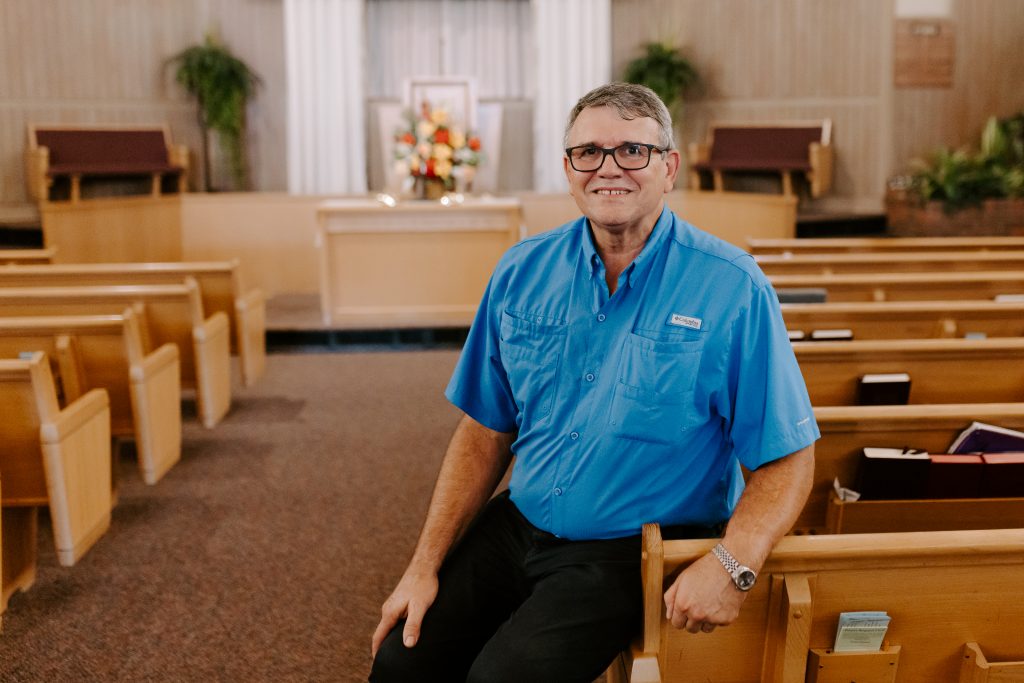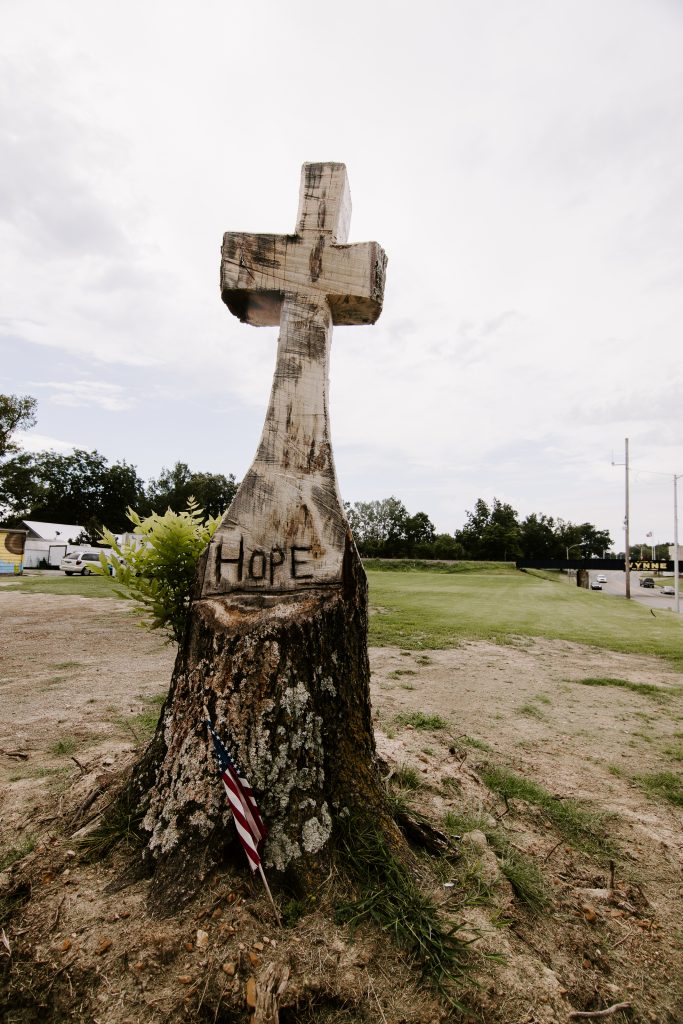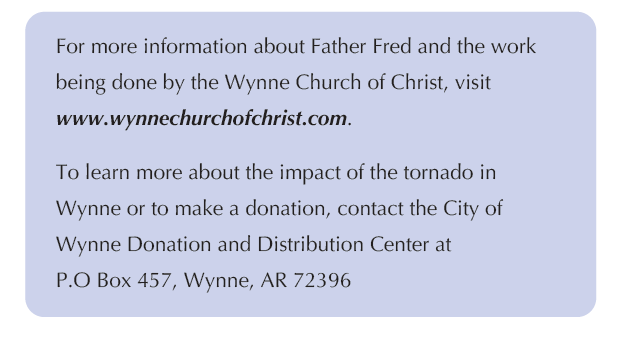Permanent housing remains a need for dozens of Wynne residents
By Adena White

More than five months after a deadly tornado tore through the city of Wynne, dedicated volunteers in the community continue to help residents rebuild their lives.
Fred Strasser is a minister at the Wynne Church of Christ who is working to help families recover after the March 31 storm. The church is located just a block from Wynne High School, which was heavily damaged during the tornado. The church building remained structurally sound, making it a convenient location for a disaster relief station.
“We could look across the street from the church and see houses that were just obliterated,” Strasser said. “Because our building only had minor damage, that put us in a great position to be able to help people.”
From day one, Wynne Church of Christ served as a venue for volunteers to store donations, prepare meals, freshen up, and sleep overnight. Utility crews were able to use the church’s parking lot for their trucks, tractors and other large machinery.
Strasser summed up the community’s needs following the tornado in three words: manpower, materials and money.
Manpower and materials were the most urgent needs in the aftermath of the tornado, which were met thanks to the generosity of volunteers from across Arkansas and neighboring states. Strasser said volunteers have logged thousands of hours and have helped provide more than 300 families with food, supplies and funds to help with expenses, such as tarps and storage unit rentals.
The greatest need for the foreseeable future is money.

blocking the intersection of Falls Boulevard and Hamilton Avenue. Out of the
trunk of the tree that was left standing, someone used a chainsaw to carve a
cross and the word “hope” into the tree.
“It serves as a reminder for everyone passing up and down that main street to
stay encouraged,” Fred Strasser said.
Leanne Lovell is a volunteer with Wynne Relief and Recovery, which the City of Wynne established immediately after the storm to serve as a distribution center. City officials rented an empty warehouse at 187 Murray Avenue to collect and distribute donations of food, water, clothing, toiletries and other essential needs. In the months since the tornado, volunteers are prioritizing making home improvement materials available to people who are moving into permanent residences.
“Our goal now is to find what we can do for the long term, and that’s going to be to repair homes that simply need quick fixes so they can be move-in ready,” Lovell said.
Strasser said that close to 50 families remain in temporary housing. Volunteers are working to try to get them into a permanent housing situation, whether by purchasing a tiny house or a fixer-upper or by looking for lots where mobile homes can be placed.
“These people are going to have to be able to find a permanent dwelling,” Strasser said. “I don’t know any other way to do that other than through financial help. I know you can’t buy everybody a new home, but maybe we can get funds together that will help them get back on their feet.”
Lovell and Strasser both addressed the dozens of underinsured and uninsured homeowners and renters who cannot afford to move forward. Some are waiting on insurance payments to cover the cost to demolish their damaged homes so they can focus on rebuilding. Others have homeowner insurance policies that do not cover the rising costs to rebuild a home. And renters are left with no options at all.
“People are overwhelmed with the process,” Lovell said. “Our goal is to take the burden off families as much as we can.”
Despite the challenges that persist, Strasser remains encouraged by the kindness and generosity shown by neighbors and strangers.
“I witnessed two storms that day,” he said. “There was a storm that destroyed, and then there was that storm of compassion that blew into our community. The storm that destroyed only lasted about 10 or 15 minutes, and the effects of it are still lingering. But the storm of compassion continues to this day. There are still people working in our community trying to help people.
“Your trials will make you bitter, or they’ll make you better. This has opened our eyes and has certainly made us more mindful of what’s happening in the lives of other people.”

